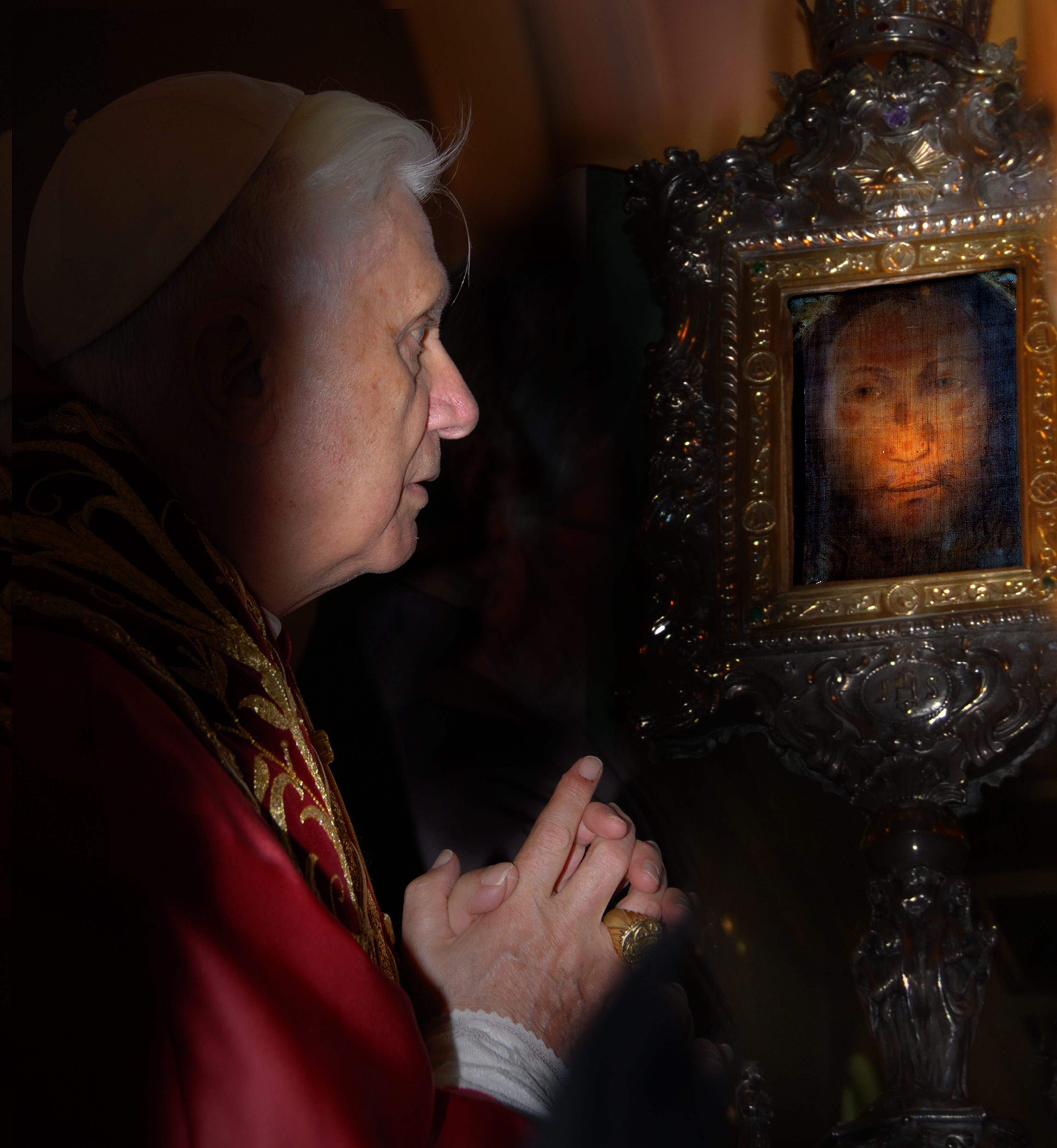The
Twenty-fourth Sunday in Ordinary Time (B)
Catechetical
Sunday
Dear brothers and sisters,
It is a curious question that Jesus
asks today: “Who do people say that I am” (Mark 8:27)? Notice that he does not
ask, “What do people say about my teachings?” or, “What do people say about my
healings?”, but “Who do people say that I am?” In this, we see quite clearly
that Jesus’ teachings and healings are intimately bound up in his person;
indeed, who he is is more important than what he says or does because what he
says and does flows from who he is.
For many long and unfortunate
years, Catholics – and others – have been too concerned with the teachings of
Jesus Christ and not concerned enough with his person. In his encyclical letter
Deus caritas est, Pope Benedict XVI
rightly reminded us that
being
Christian is not the result of an ethical choice or a lofty idea, but the
encounter with an event, a person, which gives life a new horizon and a
decisive direction.”[1]
Too often do we focus solely on
learning what Jesus said and did, and not enough on knowing him personally, on entering
into an ever-deeper relationship with him and with his Body, the Church.
To put it differently,
This
is an encounter, not with an idea or with a project of life, but with a living
Person who transforms our innermost selves, revealing to us our true identity
as children of God. The encounter with Christ renews our human relationships,
directing them, from day to day, to greater solidarity and brotherhood in the
logic of love. Having faith in the Lord is not something that involves solely
our intelligence, the area of intellectual knowledge; rather, it is a change
that involves our life, our whole self: feelings, heart, intelligence, will, corporeity,
emotions, and human relationships. With faith everything truly changes…[2]
It is safer, we think, to know
about him than it is to know him because there is less risk we will hear him
calling us to give everything away for him. If we know about him and do not
draw too close to him, he cannot ask us a question as pointed as, “Who do you
say that I am” (Mark 8:8)? If this is what stifles our relationship with Jesus,
it is only because we have forgotten that he “keeps the little ones” (Psalm 116:6).
The Lord Jesus was able to ask
Saint Peter and the Twelve a question not about his teachings or his doings but
about his own identity because they were close to him. They walked with him,
ate with him, and prayed with him. In their encounter with the Christ event, in
their encounter with the person of Jesus Christ, they came to know him, and in
knowing him they learned his teachings and could rightly say, “You are the
Christ,” the Messiah, the Savior (Mark 8:8).
Today, the Church in these United
States of America observes Catechetical Sunday, a day to thank and bless our
catechists for their important and vital work of handing on the faith. The word
catechist comes from the Greek catekeo,
meaning “to echo.” An ancient proverb holds that repetitio est mater studiorum, that repetition is the mother of all
study or learning. Your task, then, dear catechists is to assist our children’s
parents in teaching them the fundamentals of the faith in a way that they can
echo them back to you. In this way, you can be certain they have begun to grasp
them. But what is it that you are to teach them?
In his First Catechetical Instruction, which he wrote to give advice to
the Deacon Deogratias on how best to hand on the faith, our heavenly patron
Saint Augustine said the principal aim of the catechist should to help someone
learn
how much God loves him, and might learn this to the end that he might begin to
glow with love of Him by whom he was first loved, and so might love his
neighbor at the bidding and after the example of Him who made Himself man’s
neighbor by loving him, when instead of being His neighbor he was wandering far
from Him.[3]
“With this love, then,” he went on
to say, “set before you as an end to which you may refer all that you say, so
give all your instructions that he to whom you speak by hearing may believe,
and by believing may hope, and by hoping may love.”[4]
All of this begins with knowing Jesus Christ, with a personal encounter with
him who speaks to us in the Scriptures and who gives himself to us in the
Sacraments.
Seek, then, to help those entrusted
to your instruction come to realize that
Having
faith … is meeting this “You”, God, who supports me and grants me the promise
of an indestructible love that not only aspires to eternity but gives it; it
means entrusting myself to God with the attitude of a child, who knows well that
all his difficulties, all his problems are understood in the “you” of his
mother.
Teach them and show them that God
loves us more intensely than a mother and that from this fundamental
relationship of love flow all of the Lord’s commands to keep us in his love.
To be fruitful catechists, you
yourselves must first draw near to the Lord Jesus and allow him to ask you,
“But who do you say that I am?” Always ask for the grace to yield to his love.
Always be ready to take up your cross out of love for him. And always be
willing to set yourselves aside so that he can shine through you. If you live
in this way, the glow you receive from your friendship with Jesus will be
passed on to your students and they will know the love he has for them. Amen.


No comments:
Post a Comment